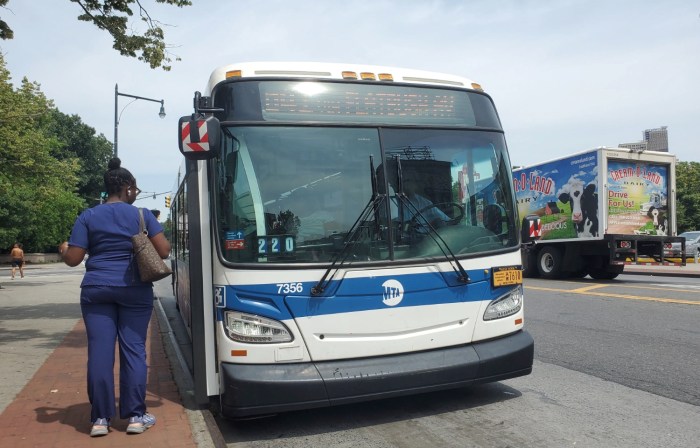By Tom Momberg
Two major city zoning amendments intended to boost the number of new affordable housing built in the borough were voted down by the Queens Borough Board Monday.
Voting 12-2 against both the Mandatory Inclusionary Housing and Zoning for Quality and Affordability zoning text amendments, the majority of community board chairmen throughout the borough said that although the need for affordable housing is great, the proposed amendments could overrule the contextual zoning changes community boards have been putting into their neighborhoods for decades.
The chairmen of Community Board 1, which represents neighborhoods including Long Island City, Ditmars and Woodside; and Community Board 3, which represents Jackson Heights and parts of Corona and Elmhurst, cast votes in favor despite strong disagreement within their boards. Nevertheless, they pointed out they voted with the majority of their boards.
The Mandatory Inclusionary amendment would mandate that developers produce a certain amount of permanent affordable housing when they build in an area zoned for inclusionary housing, whether rezoned through a city neighborhood plan or a private application.
In the establishment of the inclusionary housing text amendment, only a few areas would initially be zoned as such in Queens, predominantly in a large area around Rufus King Park in Jamaica, but also on select city blocks in community districts 1 and 2.
While the inclusionary housing amendment seeks to diversify the economic backgrounds of people living in an area, the quality and affordability amendment is intended to create a greater amount of housing and care facilities available to seniors by allowing some additional height in medium and high-density zones and lowering current parking requirements in that type of housing.
City Planning said zoning for quality and affordability would not affect contextual zoning regulations instituted locally, and would only affect parking requirements for senior housing in low-density areas.
Still, civic and community board leaders have been concerned that their work to downzone many neighborhoods would be reversed and that the elimination of parking requirements would create greater congestion in transit-starved Queens.
“Although the goal to increase affordable and senior housing units is admirable, the mayor’s 160-page proposal would decimate many of the accomplishments our community has made over the years in contextual rezoning,” Auburndale Improvement Association Vice President Henry Euler said at a Borough Board hearing a week before the vote.
The zoning amendments were drafted by the Department of City Planning as part of the mayor’s plan to build or preserve at least 200,000 units of affordable housing throughout the five boroughs.
Mayor Bill de Blasio was at a news conference at Flushing Meadows Corona Park the same evening as the Borough Board’s vote. The mayor said he respects the part community boards play in the civic process and their input often helps produce a better outcome for policy making and city planning. However, in this case, he said that the need for affordable and senior housing trumps their potential burden.
“I am never surprised when a community board raises concerns, and particularly local concerns. But we’re going to keep moving full speed ahead to make these reforms, because we must create a vast amount of more affordable housing,” de Blasio said. “We must preserve a huge amount of affordable housing or else people will not be able to live in this city. It’s as simple as that.”
The City Council will have a two-month review period for the two text amendments starting January 2016. That review period will be followed by a vote on the text amendments.
Reach reporter Tom Momberg by e-mail at tmomb




































